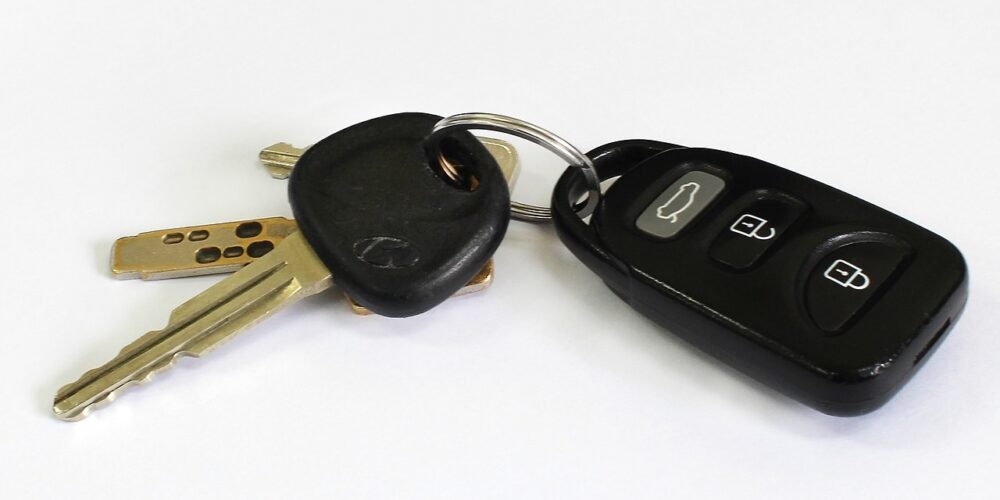Getting your first car is an exciting milestone, offering newfound freedom and independence. However, new drivers often make mistakes in their driving style and care of their vehicles that can lead to unnecessary expenses or safety concerns. To help you get started strongly and protect yourself and your car for longer, here are some of the most common pitfalls to watch out for and tips on how to avoid them.
1. Skipping Regular Maintenance
Many new drivers overlook the importance of routine maintenance, such as oil changes, tyre rotations, and fluid checks. Neglecting these tasks can lead to costly repairs and reduce the lifespan of your car.
How to Avoid It: Create a maintenance schedule based on your vehicle’s owner’s manual. Set reminders for key tasks and use a reliable mechanic at our garages to help keep your car in top condition.
2. Driving Aggressively
Hard braking, rapid acceleration, and sharp cornering may seem thrilling, but these habits put undue strain on your car’s engine, brakes, and suspension system. For some new drivers, habits like hard braking or late gear changes can simply be a lack of experience that will work out with practice and time but can still have an effect on your vehicle.
How to Avoid It: Practice smooth driving techniques. Gradually accelerate, brake gently, and take corners at moderate speeds to protect your vehicle and improve fuel efficiency.
3. Ignoring Dashboard Warning Lights
It’s easy to ignore a warning light, especially if the car still seems to run fine or the issue seems minor at best. However, these signals are there to alert you to potential problems that may worsen over time and should be checked as soon as possible.
How to Avoid It: Learn what each warning light means and address any issues promptly. A quick check by a mechanic can save you from bigger, costlier repairs down the road.
4. Not Checking Tyre Pressure and Condition
Underinflated or worn-out tyres can affect handling, fuel efficiency, and safety. New drivers often forget to check their tyres regularly and that can lead to bigger issues including safety concerns, suspension problems, fuel efficiency reduction and more.
How to Avoid It: Inspect your tyres monthly for proper inflation and tread wear. Keep a tire gauge in your car and refer to your owner’s manual for the recommended pressure.
5. Overlooking Insurance Needs
Choosing the wrong insurance policy or neglecting to update coverage can leave new drivers underprotected in an accident. While new drivers often see higher premiums than experienced drivers, and finding the cheapest policy might be your first instinct, you should make sure to check the wording and coverage to make sure that you are properly protected.
How to Avoid It: Research insurance options carefully and choose a policy that balances affordability with adequate coverage. Notify your insurer of any changes, like modifications to the car or additional drivers.
6. Overloading the Car
Packing your car close to or beyond its weight capacity can strain the suspension and brakes, reducing safety and performance. As a new driver, this is particularly dangerous when you’re still learning the handling of your vehicle.
How to Avoid It: Know your car’s load limits, which can usually be found in the owner’s manual or on a sticker inside the driver’s door. Avoid carrying unnecessary items to keep the weight manageable.
7. Neglecting to Learn Basic Car Care
Many new drivers are unfamiliar with basic car care tasks like checking oil levels, replacing windshield wipers, or jump-starting a battery.
How to Avoid It: Take time to learn these simple tasks. Many tutorials are available online, and understanding basic car care can save you money and stress.
8. Relying Too Much on Technology
Modern cars are equipped with advanced tech like backup cameras and parking sensors, but over-reliance on these features can lead to careless driving habits.
How to Avoid It: Use technology as a helpful tool, not a substitute for safe driving practices. Always double-check your surroundings manually and stay alert.
9. Skipping Practice in Difficult Conditions
New drivers often avoid driving in challenging situations like rain, snow, or heavy traffic even after passing their test. However, this can leave them unprepared when these conditions arise.
How to Avoid It: Gradually build confidence by practicing in various driving conditions with an experienced driver’s guidance. This will improve your skills and make you a more versatile driver.
10. Focusing Only on Price When Buying a Car
First-time buyers often prioritise affordability over reliability and safety features, which can lead to frequent breakdowns or high repair costs.
How to Avoid It: Consider factors like safety ratings, reliability, and running costs when choosing your first car. A slightly higher upfront investment can save money and stress in the long run.
Mistakes are part of the learning curve for any new driver, but being aware of these common pitfalls can help you avoid them. Treat your first car with care, stay proactive about maintenance, and adopt safe driving habits. By doing so, you’ll enjoy a more reliable and enjoyable driving experience while keeping costs and stress to a minimum.
To set up a maintenance schedule for your new car and ensure that you are safe on the road, we are on hand to help. Get in touch with our team to book your appointment at your local garage, today.

